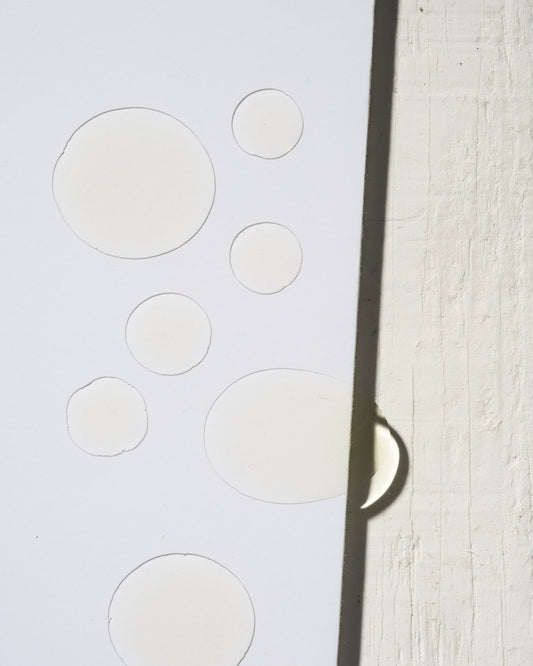Meditation is a concept that you either want to learn more about or just stay away from altogether. However, the truth is that at some point in your life, you might be curious to find out more about it — "Does this work for me?”, "Does this work at all?” The information out there on mediation gets divided into either/or categories: it either works for you or it doesn't.
You may find some mainstream sources espousing that anything and everything counts as meditation. It can be overwhelming. We get it! That's why this guide on meditation will answer all your questions in a simplified but thorough manner.
What is meditation?
Meditation is focusing within or on a particular internal or external object and bringing our attention back to it when our mind starts to wander. It is a type of mental training for self-improvement. It helps simmer down the voices within and strengthens awareness of both our mind and body.
The earliest records of this spiritual practice have been found in Vedantism, which is a Hindu philosophy in India, around 15th century BC. This philosophy states that meditation assists in transcending the self-identity blocks, our modern day limiting beliefs, and helps us find our connection to the Brahma, our Universe/modern day higher-self. The ancient Indian mental workout called Dhyana snowballed into different mediation techniques based on who is practicing it and its purpose.
How does meditation work?
Meditation works by changing the neural pathways in our brain. Neural pathways are structured based on our experiences, memories, habits, behavior and environment. Reinforcement is to the brain what exercise is to the body. The more you do it, the stronger your muscles get. The more you experience something, the stronger the pathways in the brain become. It is both a solution and a problem! Enter meditation. Meditation alters different brain regions and thus re-writes the brain patterns.
The Lateral prefrontal cortex, also known as the assessment center, assesses and helps regulate our extreme emotional responses that the fear zone and other parts of the brain trigger. It can erase unhelpful neural pathways slowly to bring positive changes to our negative autopilot behavior and habits. But it can only operate satisfactorily after the pathways between the Medial prefrontal cortex, Insula and Amygdala lose their strength. The Medial prefrontal cortex, also known as the "Me Center", is responsible for creating our thoughts, arousing feelings and controlling emotions, worth, esteem and self-image.
Our "gut feeling", aka intuition, is majorly influenced by the Insula. It controls our autonomic nervous system by regulating sympathetic and parasympathetic systems. The Amygdala, also known as the fear center, is our threat detection tool, aka our “fight-or-flight” activator. This retains memories and emotions attached to some experiences, especially the fearful ones.
Flight or fight reaction is necessary but heavy prolonged stress and traumas affect its activity. The Hippocampus is another key brain region that gets modified. It stores long-term memories and hardens them over time. The difficulty or ease in achieving our desired success depends on the kind of information it's re-writing/writing. The medial prefrontal cortex's best friends are the amygdala and the insula. It means the neural pathways b/w them are extremely strong. This Me Center itself contains powerful neural pathways.
This interdependency on each other and the tendency to ask the lateral prefrontal cortex "to not sit with them" is the reason we get stuck in toxic repeating patterns even if we're consciously trying to break them. This is why meditation is key to break those repeating life loops! Meditation weakens the strong neural connections b/w the medial prefrontal cortex and the amygdala/insula. In turn, it increases gray-matter density in the hippocampus necessary for creating new and favorable neural pathways.
The decrease in gray-matter density in the amygdala happens simultaneously that overrides old patterns. The process is so potent that when the analysis of MR images were done for one of the Harvard studies, it showed changes in the structures of the different brain regions. When we meditate, the processing of information by default decreases. This gradually starts to shrink the size of undesired neural pathways and makes the bond b/w the lateral prefrontal cortex, also known as the assessment center, and the insula/amygdala stronger.
Benefits of meditation
- Attention span and self-awareness are two abilities that one can improve with the help of mediation.
- Meditation can strengthen the mind and body connection. This is why it eases both psychological and physical symptoms of anxiety over time when the stubborn links b/w the Me Center and the amygdala/insula start to wear out.
- Meditation can increase creativity and logical promptness. It can improve executive control.
- Meditation can alleviate neurological and chronic pain intensity. It has proven to be an effective remedy in improving sleep, cultivating peace and optimizing faith.
- The claim that the ancient Indian form of meditation can speed up the process of quashing limiting beliefs has proven to be scientifically true.
- Research says that heart health can be improved with long-term meditation practice. This in turn can reduce high blood pressure.
- Meditation can also minimize the symptoms of diverse learning disorders in some.
Types of meditation
The saying, "There's no right or wrong way to do meditation" is factually wrong. There are indeed the right ways to perform this practice if you want meditation to work for you. Let's now jump to the fun part—what type of meditation technique can be beneficial for you! Just closing your eyes, thinking about nothing and returning to yourself every time a thought occurs can be super powerful whether you're a newbie or not.
Then there are other meditation methods with assigned names. Mindfulness meditation has the most research-based benefits. The best part is that there are numerous types within this type. Mindful breathing, gazing at a specific thing around you, within you and body scan are great techniques to experiment with. If you get distracted easily then mindful gazing technique is not the one for you as you'll be working with your eyes open.
Another one is mantra repetition for 15-20 minutes. Om is a short mantra and a Sanskrit term that has its origin in the Hindu faith. You can chant this or replace this mantra with some other one that has a meaning you can resonate with. You can also just repeat any other sound/word that's not a mantra. One thing to note here is that it's different from repeating affirmations as you're not actively "trying" to change your subconscious or manifest a particular desire but "letting" meditation do the work for you. Reprogramming your mind becomes easier this way if you repeat affirmations after your mediation.
Guided visualization is optimal for people looking to arouse feelings of joy, calmness, peacefulness and relaxation and not to reprogram the mind.This is because you're employing your mind in thinking various things as opposed to focusing on a particular thing or within. There are a few more meditation methods like chakra meditation, breathwork and loving-kindness meditation to replenish energy centers, decrease stress/heal traumas and cultivate the feeling of self-love respectively.
So, does meditation work?
Meditation definitely works but its effectiveness can vary depending on your past experiences and/or traumas. If your brain is more hardwired to certain processes, it can take some time and that's normal. Consistency is the key! Tracking your tiny positive shifts can be helpful. It’s absolutely normal if thoughts occur frequently, just return to the practice. Remember that there’s no such thing as a perfect experience when it comes to meditation.




















































